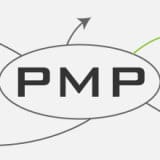Quality vs Grade for PMP Exam

In Project Quality Management of the PMP Exam, the concept of “Quality” and “Grade” is one of the most easily confused concepts (another equally important terms for quality management is Accuracy vs Precision which we deal with in a separate article).
Article Highlights
Quality vs Grade
In real life, we have been using the terms “Quality” and “Grade” mostly interchangeably. Low grade products would be described as low quality and vice versa. In the PMP Exam, “Quality” and “Grade” are totally different concepts which aspirants should not get confused. Let’s go to the definitions of them.
- Quality: a measure of how the product conforms to the requirement / fit for the expected use level.
- If the product has high quality, it should meet the quality requirements set out in the production specification and is fit for the uses as described. However, if it doe not, it is said to have low quality.
- Grade: a measure of which level the product is expected to perform.
- If the product is low grade, it is intended / designed to be used on an everyday condition than in extreme cases.
Illustrated Example
In order to help PMP Aspirant understand the differences between Quality vs Grade, let’s consider the following case.
Suppose you are buying a mobile phone, what would you look for?
- If you just want a mobile phone with basic calling functions, the “low grade” option is a mobile phone allowing you to make and receive phone calls only (probably with a number pad for you to input the telephone number). A “higher grade” phone would have a small screen to show the telephone number as well as functions to store and retrieve same frequently used phone numbers.
- If you want the “high grade” or “premium grade” options, you would select the “flagship” phones which boosts a large touch screen, a camera with high pixel count and aperture, the latest iOS or Android OS, some killer features (e.g. sexy metal frame design, infra-red control, zoom lens, curved screen, etc.). You get the idea.
- Usually, the ones with higher price tag attached are the higher grade models.
But besides the features, what you would probably also consider whether the phone is reliable and durable. This concept is known as the quality. A “high quality” product will do what it is intended to do reliably while a “low quality” phone may break down after several hours of use (this is quality issue but NOT grade issue as a phone will never designed to work for several hours only). Like grade, low quality phones are usually cheaper.
So, the most sensible advice for purchasing a mobile phone is: always look for a good quality one with a grade that meets your requirements.
Quality & Grade: Which is more important?
Judging from the above examples, we can further infer that:
- A product with low grade is acceptable since it fulfils its intended functions and expectations (e.g. less features) probably at a lower cost.
- A product with low quality is a problem, since it does not meet the requirements and expectations (e.g. breaks down easily).
- A high quality product will always meet your expectations while a low quality product won’t.
The definitions of Quality and Grade are much different. For the PMP Exam, Quality is much much more important and should not be confused with Grade. There is a domain named “Project Quality Management” but not “Project Grade Management”.
 Additional FREE PMP resources: 47+ Commonly Confused Term Pairs with detailed explanations. If you found this article useful, you may wish to reference other Commonly Confused Term articles.
Additional FREE PMP resources: 47+ Commonly Confused Term Pairs with detailed explanations. If you found this article useful, you may wish to reference other Commonly Confused Term articles.Most Popular PMP Certification Exam Articles
- My Exam Prep Tips and Free Resources (I got 4P and 1 MP)
- How to Get 35 Contact Hours Fast and Easy?
- Detailed Comparision of online PMP Courses
- Over 1000+ FREE Quality Mock Exam / Practice Questions
- A FREE Guide to Formulas and Calculation (with explanation and sample questions)
- 47 Commonly Confused Terms with detailed explanation




 Hi, my name is Edward Chung, PMP, PMI-ACP®, ITIL® Foundation. Like most of us, I am a working professional pursuing career advancements through Certifications. As I am having a full-time job and a family with 3 kids, I need to pursue professional certifications in the most effective way (i.e. with the least amount of time). I share my exam tips here in the hope of helping fellow Certification aspirants!
Hi, my name is Edward Chung, PMP, PMI-ACP®, ITIL® Foundation. Like most of us, I am a working professional pursuing career advancements through Certifications. As I am having a full-time job and a family with 3 kids, I need to pursue professional certifications in the most effective way (i.e. with the least amount of time). I share my exam tips here in the hope of helping fellow Certification aspirants!






Your website is GREAT. You are very gracious for freely helping those in need of understandable and much needed terminology for the additional free PMP resources. They are good to have. THANK YOU.
I will be helpful to continue to keep your website online. I have bookmarked your website and will look into your additional work purchases.
Harvey